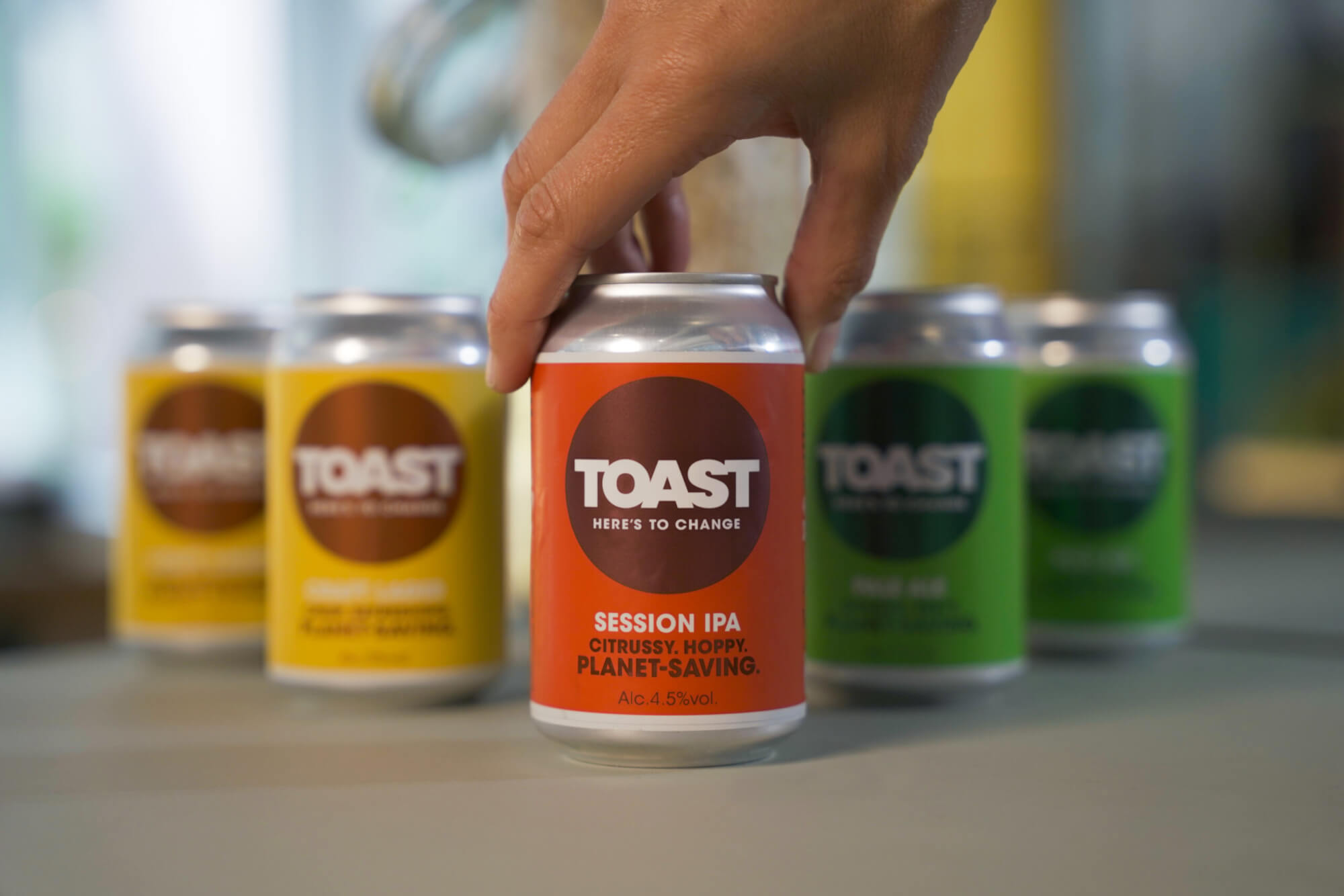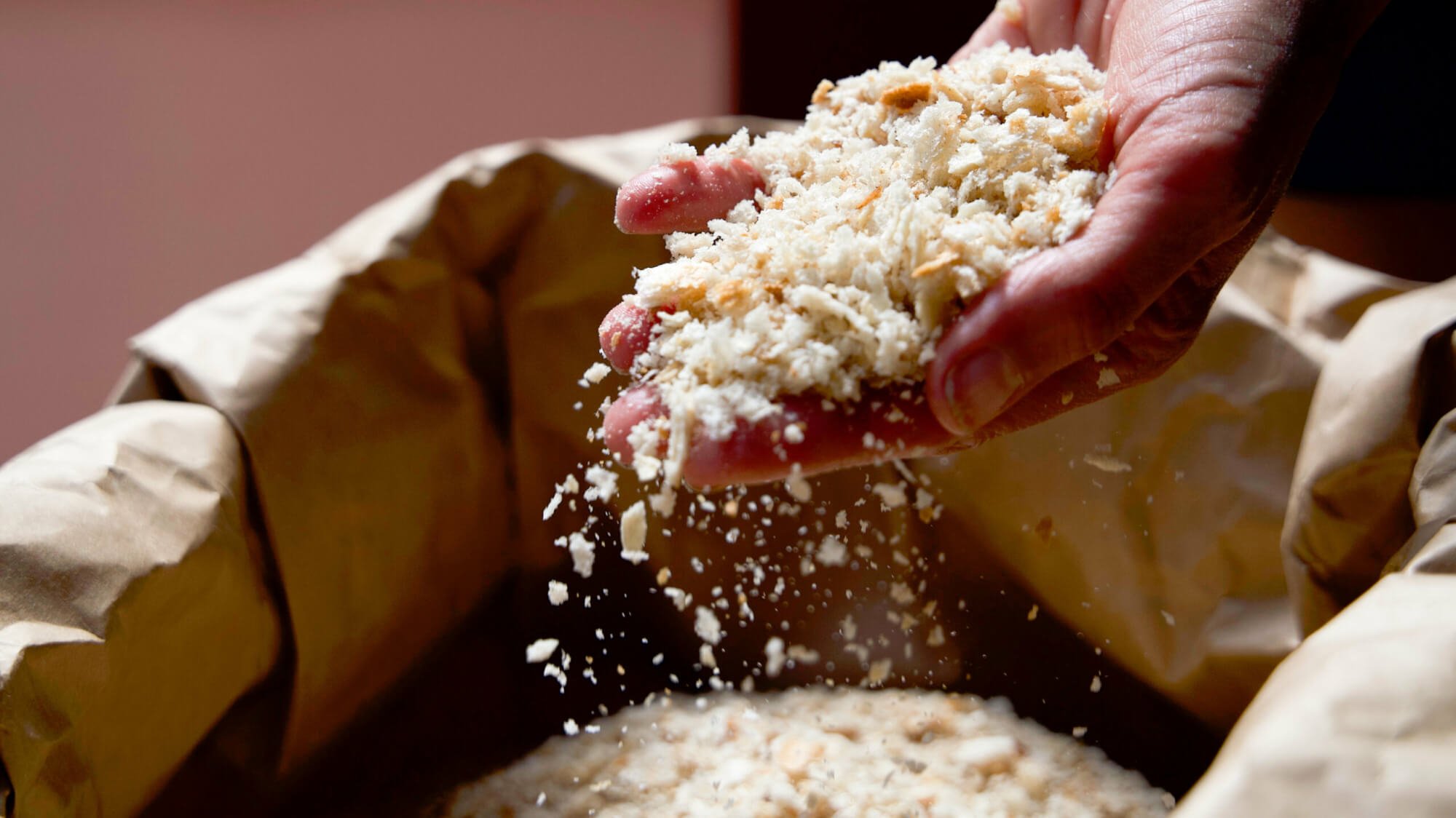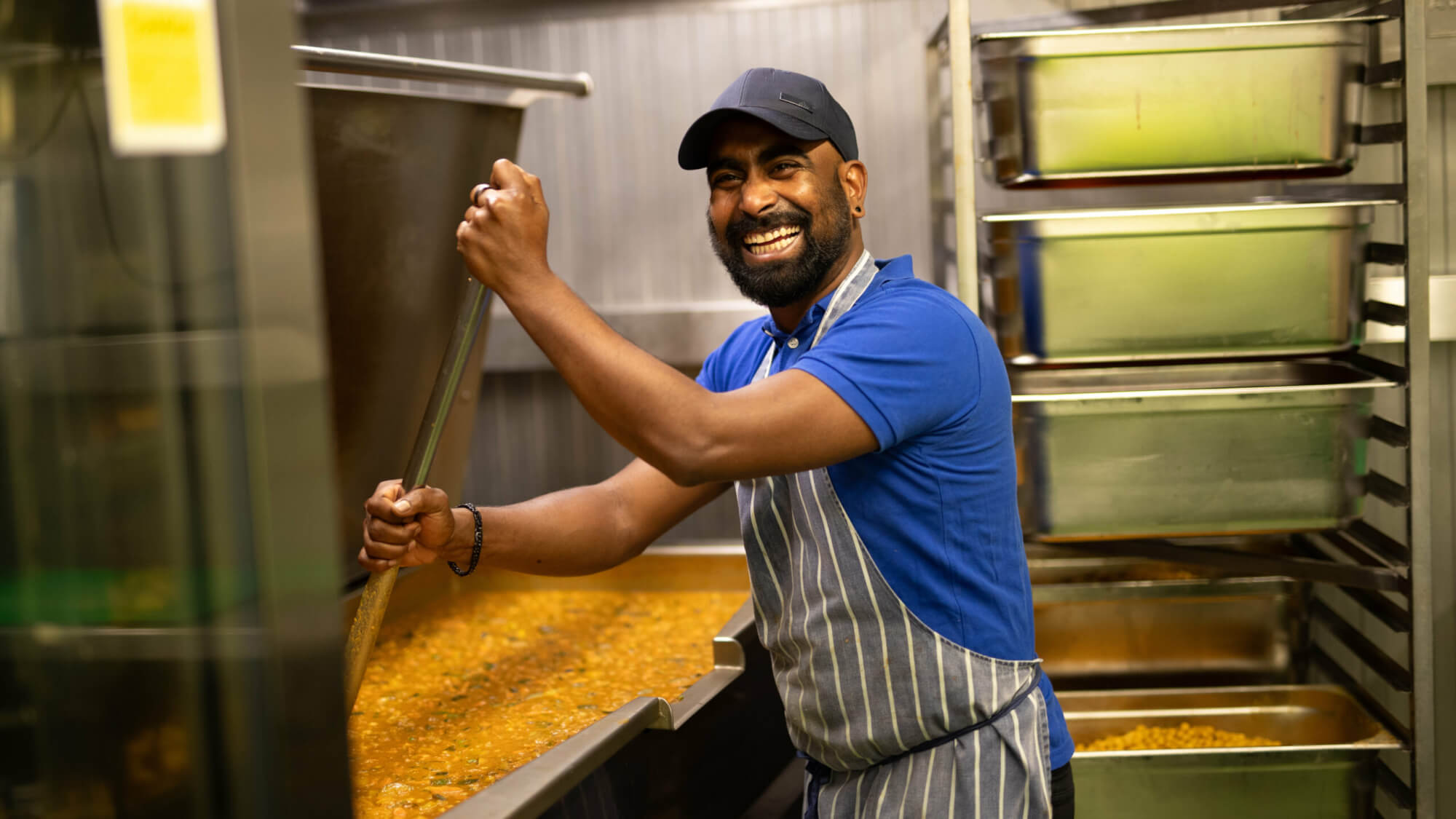Circular Booster
Support given:
Redesign
Toast Brewing is an award-winning brewery making craft beer from surplus bread. They wanted to explore new revenue streams that would also amplify the environmental impact of their business.
With funding from the Mayor of London’s Green New Deal fund and advisory support from ReLondon’s ERDF-funded business transformation programme, they were able to develop and test a new product: transforming surplus bread into a crumb ingredient for other brewers to use as an input. Toast has since launched Companion – a cost-competitive brewing ingredient made from surplus bread that other brewers can buy ready to use, increasing their operations to rescue one tonne of surplus bread per day. Off the back of the successful pilot they have been able to secure £2m in investment, expand into creating a taproom and microbrewery and develop partnerships with international breweries.What was the challenge?
Toast Brewing is an award-winning social enterprise brewery committed to fixing the food system – one pint at a time – by making beer from surplus bread that would otherwise be wasted. Since launching in 2016, they’ve rescued over three million slices of bread and have been looking at ways to significantly scale their impact.
In October 2021 at the COP 26 Climate Change Conference, they launched Toast’s 2021 Companion Series. This was a collaboration with 24 breweries to produce limited edition beers using four tonnes of breadcrumbs to replace the malted barley usually used in brewing. At this time, they were also awarded circular food pioneer project status through ReLondon’s Food Flagship Initiative.
Despite their own successes in the industry, with input costs rising and climate action urgently needed, Toast knew that more mainstream breweries were looking for low-carbon brewing solutions. They were already collaborating with over 100 breweries around the world to support a more circular economy, encouraging them to consider the 280,000 tonnes of bread wasted in the UK every year as a possible input.
Toast wanted to explore how to make it easier for other breweries to shift their practices by supplying brewers with processed surplus bread directly, and offering a service to help overcome the challenges and transition to a circular model of brewing. In doing this, they would scale their impact beyond their own production lines.

What was the response?
With a grant from the Mayor of London’s Green New Deal fund and advisory help from ReLondon’s ERDF-funded business transformation programme, Toast invested in equipment and process development for converting fresh bread into dried crumbs at scale.
During the pilot, Toast tested the production process using the purchased equipment and bread from various bakeries. They wanted to understand what was needed to make a good quality, easy-to-use breadcrumb product, which they called ‘Companion.’ They also created a brewing kit that would help them demonstrate the use of breadcrumbs to other breweries and get them interested.
The pilot provided useful insights into the operational and economic aspects of creating the product at an industrial scale . Along the way, Toast also established new relationships with bakers and sandwich makers to work out costs and operational feasibility. And beyond this, they tested the new product with potential customers, including an international brewery.
What were the outcomes?

Through the feasibility testing, Toast has successfully developed a crumb ingredient that is cost competitive compared to virgin malted barley (£600/tonne for Companion vs £750/tonne for malt).
It also has a lower carbon footprint – a craft brewery using Companion to replace just 5% of their virgin malt can save 1.2 tonnes of CO2 per year, while also preventing food waste.
Having identified a UK market opportunity of £22.2 million in annual revenue and proven the concept through this pilot, they were able to raise £2m equity investment and apply for a SMART grant from Innovate UK to increase capacity to process one tonne of surplus bread per day.
“After we launched the Companion series, we were able to use that as a proof of concept that was really instrumental in us raising over £2 million in equity investments. ”
Louisa Ziane, Co-Founder & Chief Operating Officer, Toast Brewery

Lessons learned
Toast is a great example of how businesses can amplify their environmental impact by shifting traditional rules of competition. Rather than keeping their ideas to themselves, they saw an opportunity to work with others and share their methods to make an even bigger impact. By partnering with businesses in the industry, Toast Ale is helping to make the circular economy more mainstream.
Not only was this an environmental win, but also a commercial one, having demonstrated the market opportunity for the new product, helping them garner attention from big brands. Since the pilot, Toast has managed to secure investment from Heineken, with whom they are working to develop Heineken’s circular economy strategy as part of their Net Zero targets. And as a result of this partnership, Toast Ale has also joined forces with Lagunitas in California for a collaboration brew.
Toast’s latest effort was a huge success, and one that shows how a small investment from the Mayor of London has led to a business scaling a circular solution that has attracted more investment and interest from international partners.
Next steps
Toast is going from strength to strength. They launched their first taproom experience, Good Company, in collaboration with Change Please coffee in early 2023.And naturally, as part of their commitment to zero waste, they’ve reused furniture and equipment left behind by the previous café; sourced second hand furniture; and used occupancy sensors to minimise energy use. They have also introduced a comprehensive recycling program and a zero food waste policy, partnering with Too Good to Go to enable the sale of discounted surplus café food.
That’s not all – Toast is now looking forward to soon opening a microbrewery in Autumn 2023 where they’ll be able to demonstrate the technique of brewing with bread to other brewers, as well as brewing some exciting limited edition beers that will be available in the taproom.






